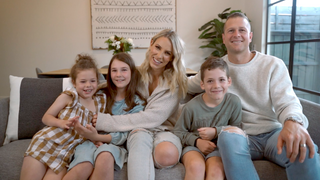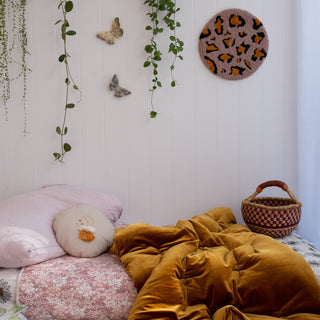When a child or teenager is wetting the bed regularly, the whole family can often feel the impact. While we typically focus on practical tips and strategies to achieve dry nights, we don’t often talk about how parents and caregivers can navigate the emotional impact they feel.
Parents can feel lonely. They may feel as though they’ve done something wrong. I often hear from parents that they don’t know where to turn. Acknowledging the emotional impact and the feelings of guilt and shame is the first step to managing it.
This blog provides practical ideas for parents on how to navigate the emotional impact of bedwetting and offers ideas for where to find peer and professional support.
The emotional impact of bedwetting
Bedwetting, or nocturnal enuresis, can cause parents to feel frustrated and helpless. They struggle to support their child who is likely also feeling shame, confusion and managing their anger with their body for not cooperating. Parents and caregivers might blame themselves, questioning their parenting skills or wondering if they are doing something wrong. The repeated cycle of washing bedding, managing night time disruptions, and comforting a distressed child can be exhausting and emotionally draining.
To add to this, if bedwetting is occurring frequently or even daily a parent’s sleep is affected. This in turn has an additional emotional impact. Some parents describe living with bedwetting as being similar to having a baby again and they struggle to manage their daily commitments with such poor quality sleep. Many parents also feel embarrassed to talk about bedwetting with friends or family. They are then carrying the burden alone, compounding the emotional toll.
There are many ways to help parents to feel less alone and also to better navigate the disrupted nights. In particular, there are three areas that I discuss with parents during consults.
Minimising sleep disruption
This usually is dependent on two main factors. The first is the age of the child and how independent they can be encouraged to be. The second is how deeply they sleep and whether wetting themselves is only waking them as they are soaking through their pyjamas.
For younger children who aren’t yet ready to take ownership for getting up in the night or using bed wetting alarms, the priority should be around minimising how wet they become overnight. Implementing strategies such as the “dream wee” and then using a pull up with comfortable waterproof bed linen for the rest of the night may help with this.
For older children who may become distressed themselves, it may be helpful to wake them a couple of hours after they have gone to bed to remind them to go to the toilet. For deep sleepers, consider a bed wetting alarm.
Where possible, both parents should take turns in doing the “overnight shift” to ensure that both are able to function during the day. Where this isn’t possible, consider a few nights off where a pull up is used and getting some rest before any overnight training is always a good idea. Training when parents are exhausted and have a lot going on, will likely cause the process to be more fraught and anxiety provoking.
Peer support for parents
It’s important for parents to know that they can talk about their child’s bed wetting freely and openly without fear of stigma.
One of the most positive aspects of social media is how we can connect with others – from all over the world – facing the same challenges we are. There are incredible online support groups for parents of children who wet the bed where people share their experiences and will listen to any feelings without judgement. For many parents this provides a vital outlet. Too often friends and family can appear to be judgemental and not understand why the problem is taking so long to “ fix.”
There are also influencers online who share practical tips and strategies as well as their own stories which can help parents to feel less alone.
Build your professional tribe
While in Australia bedwetting is not considered to be a medical problem until age 7, many parents are feeling social pressure long before this time. Working with professionals you trust and who advocate for you and your child’s well being can make a huge difference. These professionals may include paediatricians, continence nurses, continence physiotherapists, GPs and psychologists.
The important thing is that your team of professionals are giving you space and time to be honest about how this is affecting your well being. Knowing you are supported by a team of professionals who truly care and want the best for your family can make an enormous difference to your mental health.
Bedwetting is an issue that affects millions of families worldwide. While every family is different, the need to feel held and understood is a common thread that runs through many of the parents that I speak to. Through developing a tailor made plan for that suits the needs of your child and family, Kids on Track Consultancy is able to help parents address the issue with sensitivity and confidence. Support groups, online communities and healthcare professionals can provide guidance, share experiences and offer reassurance. The hope is that these connections will help to ease parents' sense of frustration and strengthen them emotionally as they navigate their way.
Written by: Ariella Lew, founder and director of Kids On Track Consultancy
Email: ariella@kidsontrackconsultancy.com
Phone: 0405541239












